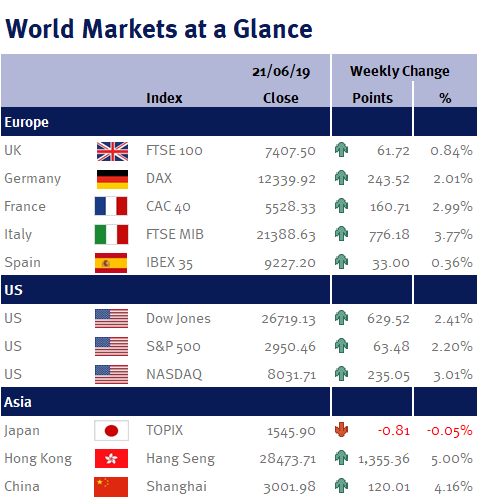Despite the fact that the central banks of the US, Eurozone, Japan and Australia have all shifted their tone towards easier monetary policy, the BoE failed to follow suit. On Thursday (20 June 2019) the BoE left interest rates unchanged. While this was expected, they repeated their previous statement that they see the need for higher interest rates.
This is especially surprising given the only economic data worthy of a mention this week showed the need for lower UK interest rates. UK core CPI inflation (which excludes volatile items such as food and energy) slowed to 1.7% (its lowest reading since January 2017), while UK retail sales declined 0.5% in May, following a 0.1% decline in April. Given the fact that the UK consumer accounts for around 60% of the UK economy, this suggests that GDP is highly likely to decline this quarter, or at best, flat-line.
This Sunday (23 June 2019) marks the third anniversary of the EU Referendum! And whether it is Boris Johnson or Jeremy Hunt who is our next Prime Minister, they will confront the same parliamentary problem that ultimately defeated Theresa May: given the Tories have a minority government, Parliament has the numbers to block a deal and also block a no-deal Brexit. Consequently, it is likely that they will be forced to call a general election.
Additionally, this coming week we have the Fed’s preferred inflation measure, the PCE, and the G-20 summit in Japan, where Donald Trump and his Chinese counterpart, Xi Jinping, have agreed to meet with each other in an attempt to break the current stalemate and restart trade talks.
Investment Management Team


